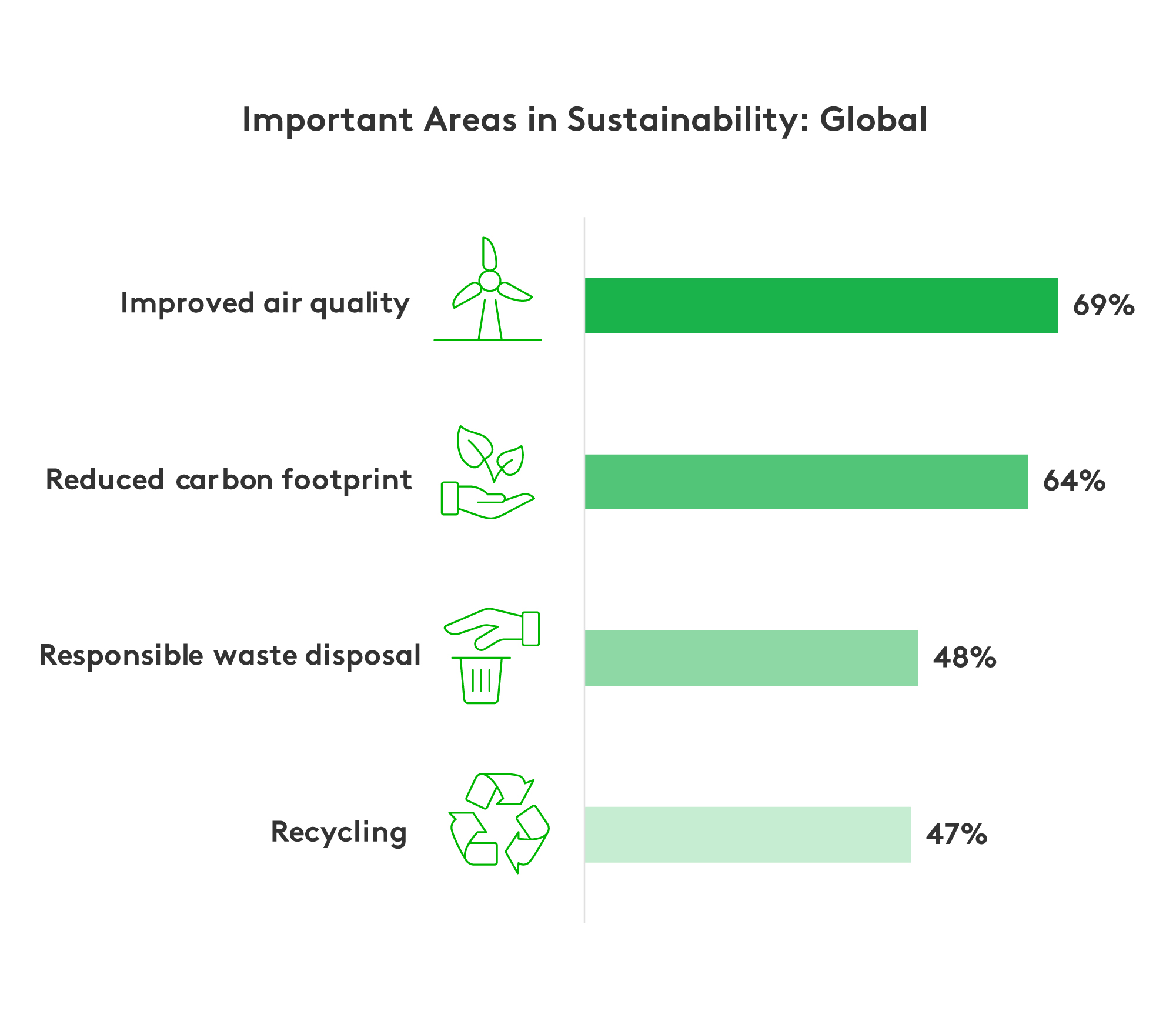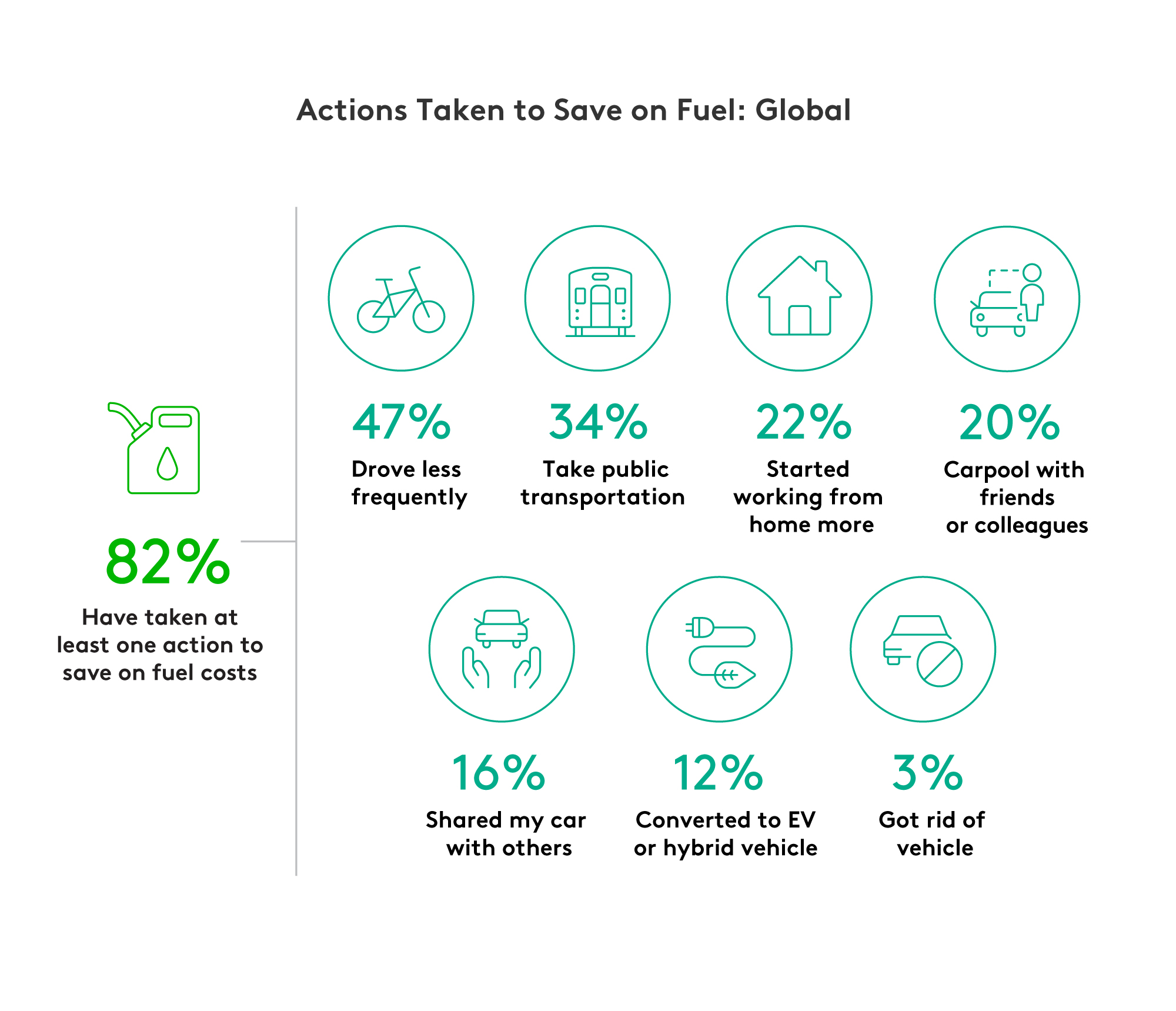Sustainability is not just a buzzword but a pivotal factor that directly influences consumer choices, particularly within the auto market. As marketers navigate the impact of sustainable practices and market adoption of hybrid and electric vehicle models, generations of consumers are helping to steer the course toward a greener automotive future.
In new research, Kantar shared insights across the auto category, including how sustainability influences the ways consumers are researching and considering new cars. This research, across more than 10,000 global consumers, identified the motivators and behaviors of consumers as they navigate the evolving auto market, and the value they place on factors like sustainability.
Millennials and the sustainability divide
Globally, sustainability emerges as a consideration for consumers worldwide when making choices about which kind of car to purchase. 16% of consumers prioritize sustainability as a key factor in their decision-making process. However, this figure varies significantly across regions, and by generations.
Millennials are most likely to put emphasis on sustainability in the automotive market. 20% of Millennials prioritize sustainability when making choices about which car to purchase, compared to 11% of Boomers.
Across regions, sustainability was most important to in-market consumers in the UAE at 23%, and least valued by those in France at 7%; highlighting the diverse attitudes towards sustainability in different markets.
Sustainability areas that matter most
Improved air quality is the most important area related to sustainability practices, with 69% of consumers indicating its value. A reduced carbon footprint came in at a close second with 64%, while responsible waste disposal and recycling practices were also recognized as valued sustainability practices for the automotive vertical.

Generationally, consumers recognize certain sustainability practices as being more impactful on their decision making. Gen X exhibits a stronger inclination toward improved air quality (70%) and a reduced carbon footprint (71%). Environmentally conscious Gen Z and Millennial consumers display near-equal value across all sustainability areas, showcasing a more holistic approach to eco-conscious decision-making.
EV and hybrid consumer adoption
The surge in electric vehicle (EV) adoption is not only a technological shift but also a vein of a global commitment to environmental responsibility. Kantar research shows that 40% of global EV owners were primarily motivated in their purchase by the desire to make a positive impact on the environment. And for those actively in-market for an EV, 48% share this motivation, underscoring the growing importance of sustainability in driving consumer choices.
Aspirations for a greener tomorrow
The desire for electric vehicles extends beyond just current EV owners. Globally, 26% of in-market consumers express a strong desire for a fully electric vehicle, signaling a growing demand for cars with zero-emission capabilities. Additionally, 28% of consumers express a preference for hybrid vehicles, showcasing a willingness to embrace a transitional phase that supports more a more sustainable impact on the environment.
Cost-consciousness strategies to save on fuel
As consumer recognition of sustainable practices is growing, so are actions directly in response to the rising costs of fuel. A significant 82% of car owners globally have implemented strategies to save on expenses. Most commonly, consumers are driving less frequently and opting for public transportation.

Gen Z (41%) and Millennials (39%) are most likely to choose public transportation to save on fuel, compared to only 25% of Boomers and 32% of Gen X. Older generations were more likely to opt for less frequent driving to save on fuel.
As the global automotive market embraces sustainability in both practice and marketing, a clear understanding of consumer preferences can support alignment of brand and advertising strategies. Driven by factors ranging from electric vehicle adoption to shared mobility, and across generational and regional perspectives, marketers can find value in the ways consumers consider and approach its varied aspects. Whether it's resonating with more eco-conscious mindsets, or recognizing regionally-influenced behaviors, the road to auto sustainability is defined by the areas that matter most to consumers.
Get more answers
For more findings from this study, access the complete Connecting with the Automotive Community report. Read about how in-market consumers are approaching the changing automotive market, and the impact across global markets.
About this study
This research was conducted online among more than 10,000 respondents across ten global markets: US, UK, France, Germany, India, Singapore, Mexico, UAE, Mainland China and Brazil between 3-17 October, 2023. All interviews were conducted as online self-completion and collected based on controlled quotas evenly distributed between generations and gender by country.
Respondents were sourced from the Kantar Profiles Audience Network.

